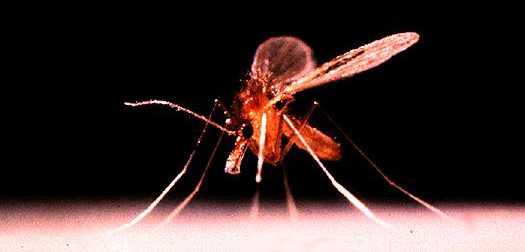
Mason Alsaleh was sound asleep when he was attacked at a U.S. Army outpost in northwest Iraq.What happened that August night last year left the 48-year-old interpreter disfigured and unable to sleep, his mind muddled with paranoia, his temper short.
But Alsaleh’s injuries — including what look today like third-degree burns on his neck and arm — weren’t caused by gunfire or an explosion. His enemy that night was a tiny insect that injected a flesh-eating parasite into his skin.
Alsaleh, a Jordanian-born military contractor who works for Falls Church-based Global Linguist Solutions, is a victim of leishmaniasis, a disease carried by sand flies that is sometimes called Baghdad Boil. He remembers that when he first got to his mattress in an old building on a contingency base, it was covered in sand flies. He brushed them away.
“It looked like a bug bite,” Alsaleh said of the lesions he got on his neck and elbow while the brigade he was working with was based northwest of Mosul. “And it grew and grew and grew, and then started to ooze. Then it gets bigger and starts to ooze again.”
The disease, which the World Health Organization says affects 12 million people worldwide, received considerable media and political attention in 2003 during the U.S. invasion of Iraq, when hundreds of soldiers began to spot red bumps on their skin that swelled for weeks before rupturing into seeping wounds. The number of cases dropped to a handful a month by last year, but as more U.S. troops make their way into Afghanistan, doctors and military personnel are warning that the number of cases could tick back up.
Although it’s not commonly found in the United States, leishmaniasis is considered endemic in 88 countries and is most prevalent in Afghanistan, Brazil, Bangladesh, India, Nepal, Sudan, Bolivia, Peru, Saudi Arabia and Syria.
When an infected sand fly bites a human, it injects the parasite under the skin, explains Col. Glenn Wortmann, chief of the Infectious Diseases Service at Walter Reed Army Medical Center. Ironically, the parasite stays alive by hiding inside the human body’s center of immunity: white blood cells.
“They multiply, they burst out of that macrophage [white blood cell], infect other macrophages, and there’s a progressive infection, eventually causing an ulcer in the skin,” said Wortmann.
But Alsaleh discovered that the treatment he began in March was almost as traumatizing as the disease itself. The medication that is commonly recommended by doctors is Pentostam, which is administered in 20-injection doses and is “associated with a tremendous number of side effects,” said Wortmann.
Most patients who use Pentostam are plagued for months by an aggravated pancreas and liver, as well as severe muscle and joint pains, said Wortmann. It isn’t approved by the Food and Drug Administration: U.S. military patients can get the drug only at Walter Reed, and civilians such as Alsaleh must obtain it through the Centers for Disease Control and Prevention.
Other methods used to get rid of Baghdad Boil include a pill called fluconazole, sold under the name Diflucan, which Wortmann said is normally used for fungal infections. For leishmaniasis, it’s taken once a day for six weeks, but it’s not nearly as effective as Pentostam, said Wortmann.
In September 2003, one of the highest months of leishmaniasis infection among U.S. troops in the past seven years, the Defense Department issued a memorandum asking health-care personnel to “increase their level of suspicion for this disease among redeploying personnel from Afghanistan, Iraq and other areas where leishmaniasis is endemic and sandflies are prevalent.”
Soldiers were required to apply a DEET-based product to their bodies and to treat their uniforms with a repellent called permethrin. Col. Peter J. Weina, the director of the Leishmania Diagnostics Laboratory at the Walter Reed Army Institute of Research in Silver Spring, said those rules, along with having more soldiers sleeping in buildings rather than in tents, have reduced the number of infections.
ATTENTION READERS
We See The World From All Sides and Want YOU To Be Fully InformedIn fact, intentional disinformation is a disgraceful scourge in media today. So to assuage any possible errant incorrect information posted herein, we strongly encourage you to seek corroboration from other non-VT sources before forming an educated opinion.
About VT - Policies & Disclosures - Comment Policy



